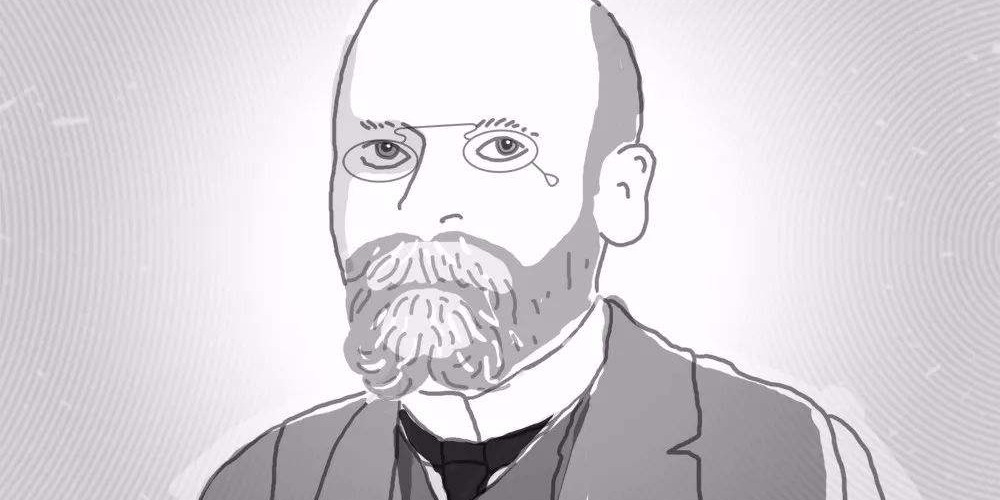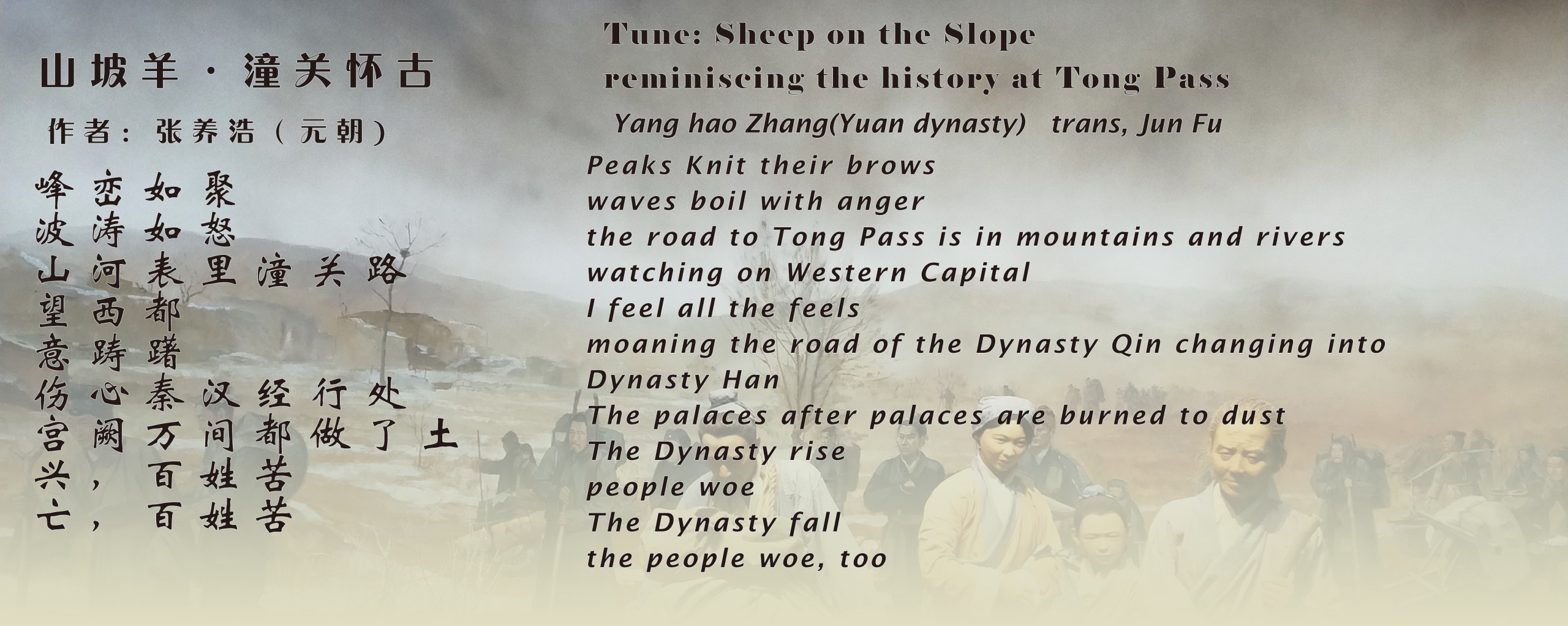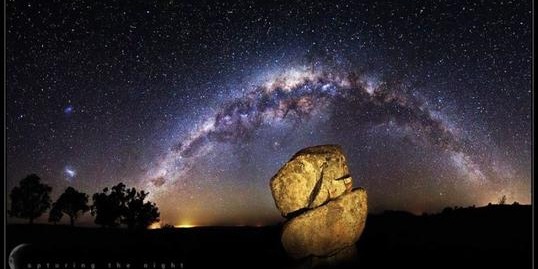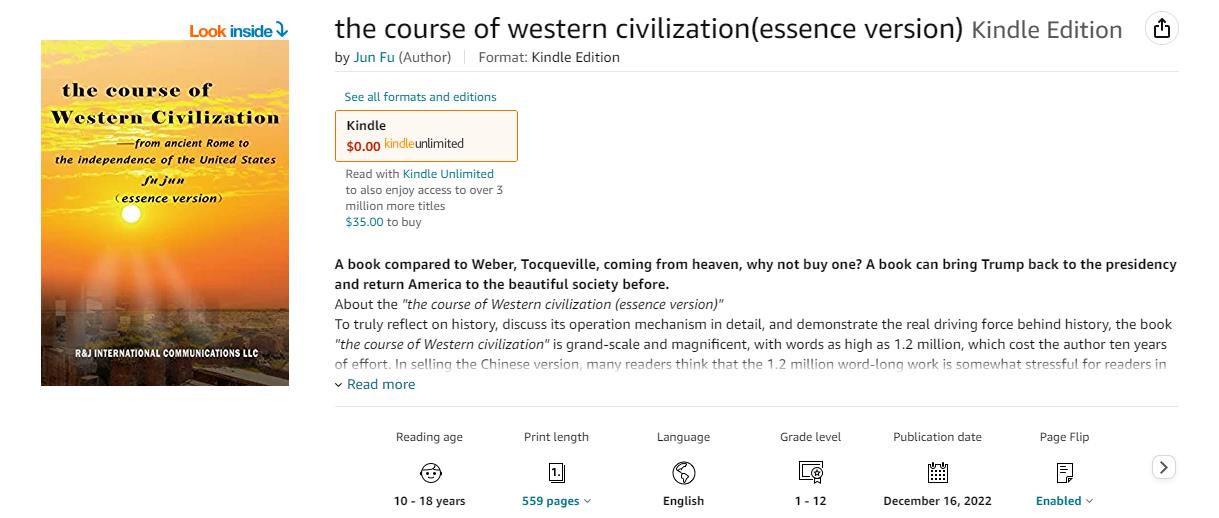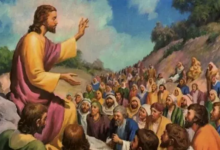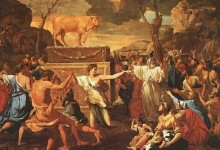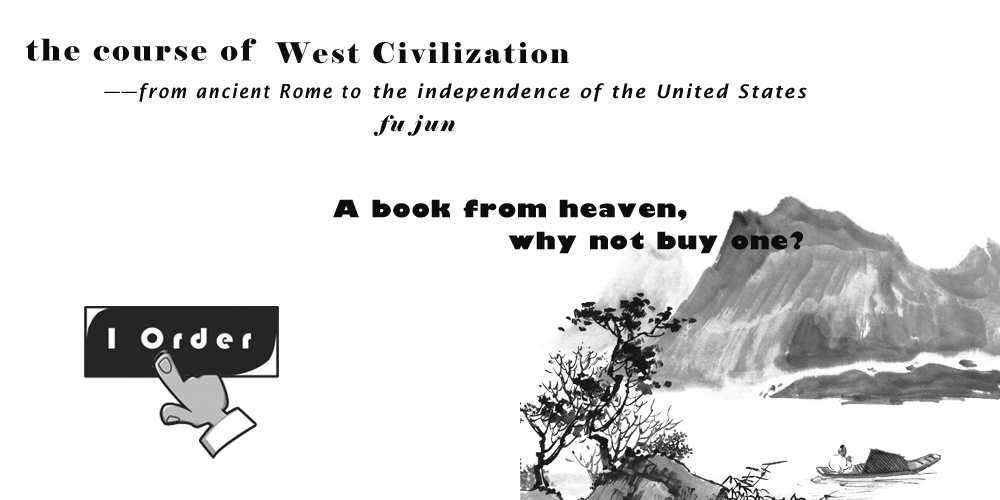preface
This is the first subsection of Section 2, “Religion Determines Western History” of Chapter 1, the first part of “The History of Western Civilization”, I renamed it “Why can Religion Determine Human History?” This subsection mainly quotes Durkheim and Berger’s views that religion sacrifies the human system and makes the social system extremely stable, which can not be achieved by culture, etc. Therefore, religion determines the human social system and human history.
Why can religion determine human history?

In the last section, we mainly discussed the theory of Muller, the founder of religious studies, with which I am inclined to agree. However, for prudence and comprehensiveness, I will introduce the views of other thinkers on religion. Feuerbach believes that religion is an anesthetic to the soul. Because human beings are fragile and insignificant, they fabricate a god to rely upon. Personally, I think Feuerbach’s view is the most boring. People don’t even know where they come from, but they have the courage to believe that God is created by themselves; what ignorance and arrogance are these. Fraser, a famous sociologist, the author of “Golden Branch”, believes that religion comes from spells.① In fact, admitting the existence of spells had shattered Feuerbach’s ideas. since spells, such low-level superpowers, exist, so why can’t God, such high-level Superpowers, exist? However, I disagreed with Fraser’s view because it is obvious that Christianity does not admit spells and believes that spells are heretical superstitions. Christians only rely on human reason and the third cognitive function to know the infinite, the God. I won’t introduce the ideas of some other thinkers because they have little influence. For example, Freud’s bizarre theory introducessex into religion and believes that primitive religion comes from the early sexual impulses of humans. Here we introduce Durkheim emphatically; he is another master of sociology. Durkheim opposed Muller’s views. He disputed that the relationship between these linguistic studies and the origin of religion is questionable; most of the time, the actual effect of worship is insignificant, which means that many worship and admiration of trees, mountains, and rivers may not bring any benefits to humans.
However, why have the worship rituals been inherited, continued, and maintained so far? He believes that people’s worship of totems in primitive society is not the worship of gods but only the personification of the clan and tribal social systems. The totem is a symbol of the personification of social systems. It represents the spirit and vitality of a clan or tribe. Symbols and rituals have been created to deify vitality and the spirit of the social system, that is, the deification of totems. ②He believes that religion can exist independently without the concept of gods because, in his view, religion is a product of some disguise. Religion exists for social cohesion and social morality, and gods are only its appearance. These are actually similar to Feuerbach’s views. Feuerbach believes that man creates the concept of God, and Durkheim goes further and believes that man creates the belief of religion. Of course, Durkheim’s view is easier to accept than Feuerbach’s. He did not completely deny the existence of gods and spirits but only believed that humans had created religions and religious rituals for natural and social reasons. He still admitted the existence of spirits; His theory is an eclectic view.

Welcome to https://www.amazon.com/dp/B0BQF77K3D to buy the Kindle ebook“the course of western civilization(essence version)”

I certainly disagree with Durkheim’s view. However, Durkheim believes that people are social animals, and social morality is a necessary condition for the existence of human society. These are all correct. But where do these social morals come from? Is it really generated from the practice of life? Obviously, the moral laws that produce these social morals do not come from life, but from our subconscious minds, from the depths of our souls, and from the universe. Kant’s analogy between the moral laws in his heart and the shining starry sky over his head is excellently reasonable; the moral laws exactly come from the depths of the brilliant starry sky. The most obvious is monogamy, a unique rule in the Christian world. This marriage rule conflicts with other religions’ doctrines and secular society’s customs. Because of the greed and depravity of human nature, it is more inclined to polygamy or polyandry. It is most obvious in the traditional secular society of China. The emperor could have countless concubines,scholar-officials could have three wives and four concubines, and ordinary people could also have groups of wives and concubines as long as economic conditions permitted. Monogamy can be said to be anti-human and anti-life, but monogamy comes from the depths of the soul and the moral law, which is from the depths of the universe. It is the tremendous reverence and love between the husband and the wife. When it is established through doctrine in Christianity, it becomes a symbol of civilization and is slowly accepted by any society.
Later, we will discuss freedom and equality. They are also anti-humanity and anti-life, just like monogamy, but in the end, they are as well accepted by any society and regarded as a symbol of human civilization. Therefore, social morality does not come from the practice of life, not for the need to maintain social order, but directly from the depths of the universe, the depths of the soul, which is self-existent and sacred. In this case, why need these moral laws to cover a sacred cloak of religion? So Durkheim’s saying, “religion is to deify and totemize the social system of humans, and religion exists for social cohesion and social morality.” is self-defeating. And the most important thing is that Durkheim cannot explain why human beings have to rely on the sacred cloak of religion to stabilize the social order? Why do no other things but religion have a sacred cloak? Where does the sacredness of religion come from? Why does sacredness have so much power that can be used to stabilize the social order? These are problems Durkheim cannot answer.


But Durkheim has insight into the substantial social significance and role of religion. He and I all believe that religion is the decisive factor in society. He believes that it is difficult for a society to survive without religion. Religious rituals, taboos, sacrifices, and piety are all unconscious external manifestations. The purpose is to cultivate human behaviors for social existence and perpetual existence. I am deeply convinced of these, and Durkheim significantly influences the understanding of religion. Many sociologists have followed his views, expounding on the decisive role of religion on society from various angles, some of which are fantastic, such as “The Sacred Veil-The Elements of the Sociological Theory of Religion.” This is a famous book by the renowned sociologist Berger, who elaborated in his book that humans create religion to maintain social stability and order.
As for the theories of Durkheim, Berger, and others, I personally think that as long as the head of their doctrines—religion is a product of social needs and life practice, replace with that religion, the mysterious power comes from infinity and the depths of the universe, and the moral law comes from the depths of our souls, subconscious. Then, all is perfect. For example, countless authors wrote the Old Testament going through more than 1600 years. So what is the basis of these countless authors to keep the continuity of their works thread over 1600 years? It is based obviously on the natural laws and moral laws that are deep in our souls and come from the depths of the universe. After their continuous exploration and research on these natural laws and moral laws, they finally sorted out the Scriptures closest to the origin of humans and the essence of the world.
Similarly, the New Testament is also the collective work of many authors. It is also the result of continuous exploration and research on natural law and moral law. Otherwise, it is difficult to believe that the primary threads of the New Testament from many authors’ are so consistent. Of course, for Christians, needless to say, the New Testament recorded Jesu’s words are coherent. Jesus’ words are naturally compatible with the moral laws deep in our souls and the universe. However, there is no ideological deviation, and it is basically uniform in many people’s records, which is a miracle.

Welcome to https://www.amazon.com/dp/B0BQF77K3D to buy the Kindle ebook“the course of western civilization(essence version)”

After a simple review of Durkheim and Berger, we will get down to business and take a look at Berger’s theory. The following are some of the main views of “The Sacred Veil—Theoretical Elements of Religious Sociology”, which I summarized briefly here.
Berger believes that religion regards the relationship between the secular society and the universe as the corresponding relationship between the lower and upper realms. Everything in the lower secular society has its counterpart in the upper universe, and people actually participate in the universal sacred activities. Each of our roles has a counterpart in the universal order, which is sacred and inviolable. And we can’t evade our responsibilities and obligations. These make each person’s role more universal; the role is not only a self-identified or recognized by others but also a corresponding role in the order of the universe. The self-identity of individual roles becomes more solemn and more sacred. We are fulfilling a great sacred mission rather than simply living, which sublimates and transcends our life. For example, the father “in the lower realm” reproduces the sacred archetype “in the upper realm”; he is authoritative, benevolent, and powerful. Under this holy halo, every father will be more involved in his role and assume social responsibilities. These fathers will have a more sublime sense of mission. They will sacrifice their lives to defend their families, children, and the country and maintain the stability of the entire society. ③


Moral responsibilities are easily forgotten in society due to the greed and degeneration of human nature, and religion can constantly remind everyone through rituals, ceremonies, and worship. This, the reminder function, is also another major function of religion. For example, as a Christian, you often pray in your daily life. Therefore, You are often reminded that the only guarantee that this prayer has effects is what we do must comply with the Bible and practice brotherly love, charity, benevolence, help strangers, and so on. The pastor’s sermon tirelessly repeats these Christian ethics and conduct codes every Sunday. Under such intensive preaching, even the dull and unrestrained people will control their lives and try not to violate these ethics. And many ceremonies on special occasions also provide more details about what to do. For example, at the king’s coronation, when the king was crowned and anointed, the priests kept reading the scriptures about the king’s responsibilities in the Bible, such as protecting the lamb of God, maintaining the peace of the world, resisting the attack of paganism, acting fairly and justly, and so on. ④
Berger also believes that another important function of religion is the transcendence of death. I have pointed out that the transcendence of death is an essential reason for generating religion. Of course, I believe that the transcendence of death is a real feeling and experience, such as the nirvana of Buddhism, the immortality of Taoism, Christianity’s complete happiness of returning to heaven, etc. In Berger’s eyes, religion’s transcendence over death is unlike this. He believes that it is a social function of religion and a product of the needs of life practice because he also believes that humans’ inevitable death and destruction may cause significant damage to society. However, I think Berger, etc., these sociologists who regard religion as the product of life practice, whose discussion about the religion of transcending death is very sloppy and vague, are difficult to withstand under careful scrutiny. Since death is unavoidable, it is entirely possible for humans in secular society to “Eat, drink, and be merry, for tomorrow we die.”.People will indulge in sprees, give up their social responsibilities, and even show up in extremely perverted behaviors such as killing for pleasure. Nevertheless, religion can dilute people’s fear of death, realize the transcendence of death, treat death as a sacred cause, and even make people become Martyrs, launch a holy war for religion, and accomplish the most extraordinary deaths. However, how can it transcend death and downplay death? If there is no perception of infinity, no religious experience, and only a cloak of religion is created for social stability and order? This is also the fatal defect of their theory. Without linking religion with infinity, gods, and the mysterious power of the universe, it is difficult to explain religion’s transcendence over death. ⑤

Welcome to https://www.amazon.com/dp/B0BQF77K3D to buy the Kindle ebook“the course of western civilization(essence version)”



So far, the tremendous role of religion has emerged and eventually touched on the theme of this book. The ultimate purpose of human existence is to pursue the meaning of life, the real meaning of life, the eternal life, eternity, transcendence of death, and come to a sacred and beautiful world, the ultimate world. This ultimate purpose not only affects our living habits and customs, but more importantly, it determines our social system, political structure, and the process of human history. This is also the point that will be explained all over this book from beginning to end. Religion has more influence on society than material foundations and economic interests, and belief is greater than political ideas.
Note:
① Trumpf,G. “the origin and exploration of religion”, Sichuan People’s publishing house, trans, Sun Shanling, p. 72-73, 88-93, 109-120
② Trumpf,G. “the origin and exploration of religion”, Sichuan People’s publishing house, trans, Sun Shanling p. 100-109
③ Trumpf,G. “the origin and exploration of religion”, Sichuan People’s publishing house, trans, Sun Shanling p. 46-47
④ Trumpf,G. “the origin and exploration of religion”, Sichuan People’s publishing house, trans, Sun Shanling, p 49
⑤ Berger,P.L. “the sacred canoey – Elements of sociological theory of religion”, Shanghai People’s publishing house, trans, Gao shining, p 53
⑥ Berger,P.L. “the sacred canoey – Elements of sociological theory of religion”, Shanghai People’s publishing house, trans, Gao shining, p 40

Welcome to donate and support. Your support is the biggest driving force for the author’s writing. I believe it is also support for God and God’s cause. Friends with WeChat and Alipay can click on the QR code below to donate.

Friends without them can use the following PayPal account to donate, https:/ /www.paypal.me/readjoyinc.
 the course of Western Civilization
the course of Western Civilization

